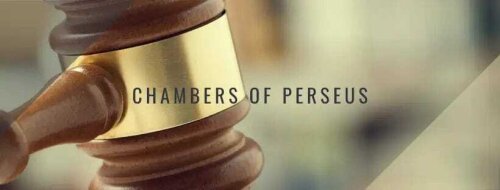Best Property Damage Lawyers in Harare
Share your needs with us, get contacted by law firms.
Free. Takes 2 min.
List of the best lawyers in Harare, Zimbabwe
About Property Damage Law in Harare, Zimbabwe
Property damage law in Harare, Zimbabwe, refers to legal provisions addressing the responsibility when physical harm occurs to someone's property. This can involve damage caused either by individuals, businesses, or natural events. In Harare, these laws help establish liability and determine compensation for the party whose property has been harmed. Understanding these legal frameworks is crucial for property owners, tenants, and entities involved in real estate.
Why You May Need a Lawyer
There are several situations where seeking legal advice might be necessary. These include:
- Disputes over property damage caused by construction or excavation activities.
- Damage from natural disasters where insurance claims are contested.
- Vandalism or malicious destruction of property.
- Complications arising from tenants damaging rental properties.
- Negotiating settlements in property damage claims.
- Wrongful assessments of property damage by insurance companies.
In such scenarios, a lawyer can help clarify rights, assess the extent of damage, determine the liable party, negotiate settlements, and represent individuals in court if necessary.
Local Laws Overview
The key aspects of local laws in Harare relevant to property damage include:
- The Delict Law: This outlines civil wrongs and includes property damage. Someone whose act causes damage to another's property can be held liable under this law.
- Insurance Regulations: Insurance claims related to property damage must adhere to specific guidelines, and legal intervention is necessary in cases of disputes.
- Landlord and Tenant Acts: These laws govern the responsibilities of landlords and tenants regarding property preservation.
- Tort Law: Aims to provide redress for civil wrongs not arising out of contractual obligations, particularly property damage.
These regulations form the basis of legal actions and defenses related to property damage cases in Harare.
Frequently Asked Questions
What constitutes property damage under Zimbabwean law?
Property damage refers to harm that affects another's property, encompassing physical harm, environmental degradation, or destruction due to negligence or intentional acts.
Is property damage a civil or criminal matter?
Property damage can be addressed in both civil and criminal court depending on whether it involves criminal conduct or a breach of civil duties.
How can I prove property damage in a legal dispute?
Proving property damage typically involves documentation, photographs, expert evaluations, and witness testimonies that support your claim.
What should I do if I disagree with an insurance assessment?
Seek a second opinion from an independent assessor and consider consulting a lawyer for assistance in negotiating with the insurance company.
Can I claim for damage caused by natural disasters?
Yes, if you have insurance cover for natural disasters, claims can be made, though disputes may need legal resolution if compensation is denied or contested.
What time limits apply for claims relating to property damage?
Time limits vary but generally follow the prescription periods for delictual claims; legal advice should be sought to avoid lapsing deadlines.
Can tenants be held liable for property damage?
Yes, tenants can be held responsible for damage beyond normal wear and tear, as outlined in rental agreements or the Landlord and Tenant Acts.
What recourse is available if a neighbor's actions damage my property?
Negotiation, mediation, or legal action, including filing a delictual claim, can be pursued depending on the damage's severity and culpability.
Are there defenses against property damage claims in Zimbabwe?
Yes, defenses include arguing the absence of negligence, contributory negligence by the claimant, or acts of God if applicable to accidents such as natural disasters.
What is the role of local councils in property damage cases?
Local councils may intervene in cases where public infrastructure or compliance with zoning laws is involved in the damage claim.
Additional Resources
Here are some resources that may assist those seeking legal guidance:
- The Law Society of Zimbabwe: Offers a directory of practicing lawyers in Harare.
- The Zimbabwe Insurance Brokers Association: Provides insights and resources regarding insurance claims related to property damage.
- Local Dispute Resolution Centers: Help with mediation to resolve conflicts without court intervention.
- Harare Municipality: For claims or disputes involving public property or services.
Next Steps
If you need legal assistance in property damage, consider taking the following steps:
- Document the Damage: Collect evidence such as photographs, repair estimates, and witness statements.
- Understand Your Policy: If you have insurance, review the policy and contact your insurer promptly.
- Consult a Professional: Contact a lawyer specializing in property damage to evaluate your case.
- Discuss the Strategy: Work with your lawyer to determine the best legal strategy for your situation.
- Explore Mediation: Before proceeding to court, consider mediation to settle disputes amicably.
Following these steps can help ensure that your property damage claim is addressed properly and efficiently.
Lawzana helps you find the best lawyers and law firms in Harare through a curated and pre-screened list of qualified legal professionals. Our platform offers rankings and detailed profiles of attorneys and law firms, allowing you to compare based on practice areas, including Property Damage, experience, and client feedback.
Each profile includes a description of the firm's areas of practice, client reviews, team members and partners, year of establishment, spoken languages, office locations, contact information, social media presence, and any published articles or resources. Most firms on our platform speak English and are experienced in both local and international legal matters.
Get a quote from top-rated law firms in Harare, Zimbabwe — quickly, securely, and without unnecessary hassle.
Disclaimer:
The information provided on this page is for general informational purposes only and does not constitute legal advice. While we strive to ensure the accuracy and relevance of the content, legal information may change over time, and interpretations of the law can vary. You should always consult with a qualified legal professional for advice specific to your situation.
We disclaim all liability for actions taken or not taken based on the content of this page. If you believe any information is incorrect or outdated, please contact us, and we will review and update it where appropriate.











